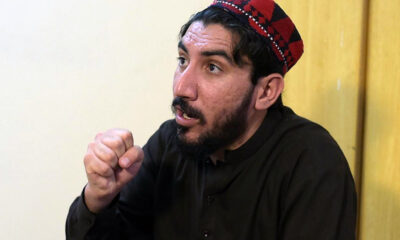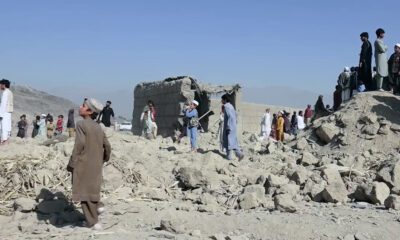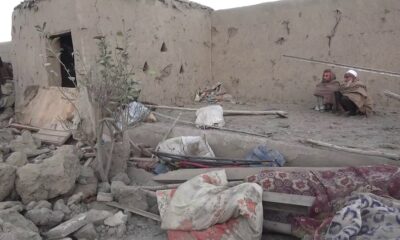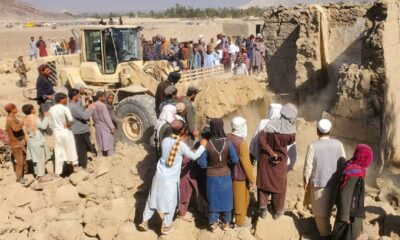Balkh
At least 1,000 pigeons die of starvation – Balkh
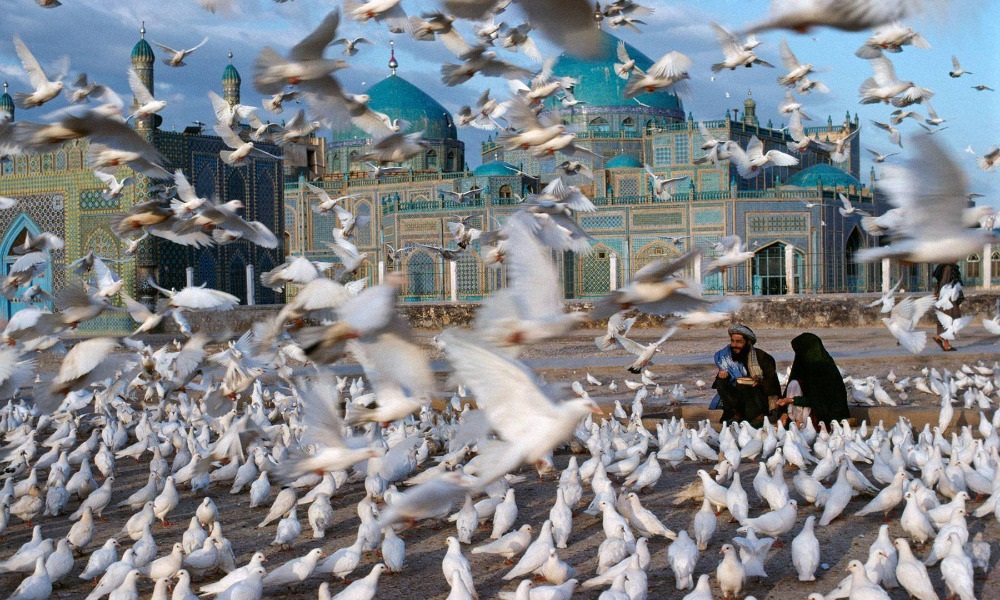
Restrictions on movements and the ban on pilgrims entering Rawza have led to a shortage of food for pigeons, which have so far killed some 1,000 of them due to starvation.
The Coronavirus has not only challenged human life but has also threatened the life of pigeons in Rawza-e Mubarak – the shrine of Ali – in Mazar which due to the restrictions face lack of food.
Reportedly, nearly 1,000 pigeons have died of starvation so far, according to officials.
They emphasize that if the government does not help provide the pigeons with food, a large number of birds may vanish.
The pigeons – widely known as ‘the white doves’ that spreads the feeling of freedom – are the birds that in the sky of Mazar-e-Sharif catch the eyes of all the spectators and fly around the blue dome of the shrine of Ali.
Before the Coronavirus pandemic, thousands of people used to visit the shrine every day and, see the pigeons and would sprinkle them with seeds, the bird food.
For three months now, due to the spread of the Coronavirus, pilgrims have been barred from entering the holy spot. Thus, the white doves, who have become accustomed to the people, have faced a shortage of seeds – a serious threat to their survival.
A number of residents of Mazar-e-Sharif, who have been throwing three bags of wheat and corn to pigeons each day since the beginning of the pandemic and curfews, say that the situation will get worse if the government and relevant bodies do not help.
The exact number of pigeons is unknown, but officials say that there are more than 10,000 of them.
These birds, which were never far from human love and pilgrims’ special attention, feel alone now and their survival depends on human help.
Officials at the shrine say that they have shared the problem with the local government and the Ministry of Hajj and Religious Affairs, but they have not yet addressed the problem.
Balkh
Balkh historical sites on focus of foreign and domestic tourists’ attention
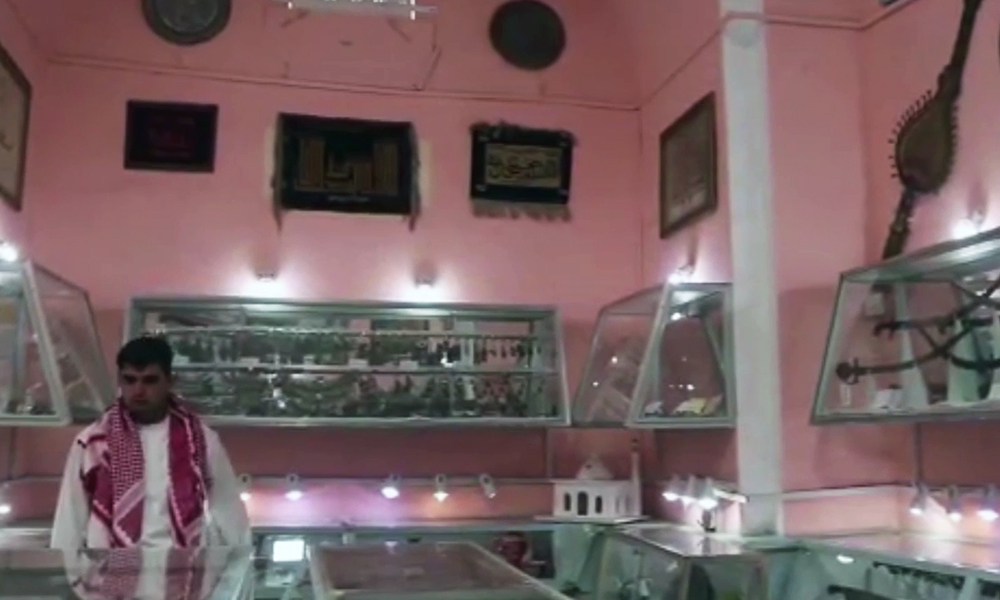
The historical and ancient sites of Afghanistan’s Balkh province have attracted the attention of foreign and domestic tourists more than ever nowadays.
Foreign tourists say that Afghanistan, especially Balkh province has many undiscovered places and that is why they want to visit this province.
Beside the historical and ancient sites of Balkh province, the small museum of Hazrat Ali’s Shrine is one of other places where foreign tourists visit.
According to local officials, the domestic and foreign tourists visit the ancient and historical sites of Balkh, in Dawlatabad and Dihdadi districts of this province.
During their visit to Shrine of Hazrat Ali’s Museum, they said that Afghanistan is full of tourist attractions and people are more interested in traveling to this country and to come to this country for pilgrimage and tourism.
“If the government pay more attention, we have many interested Iranians who want to come to Afghanistan for pilgrimage and tourism,” said Azghar Mohammadi, an Iranian tourist.
Tourists also say that contrary to their previous views over Afghanistan, they have now found that the people of this country are hospitable, kind, and there is complete security.
“It is not a bad country from the point of view of being a tourist, it has good natural scenery, good sightseeing places because Afghanistan and Iran was once one country, its history, culture and civilization are not much different from Iran,” said Ali Jawad, another Iranian tourist.
Simultaneously, the officials at Shrine of Hazrat Ali Museum say that 50 foreign tourists have visited this museum since the beginning of the year.
According to them, this number shows the interest of foreign tourists in this province.
“From the beginning of this year until now, we have registered about 50 tourists who have visited the Roza Mubarak,” said Qayoum Ansari, the head of the museum.
The Museum of Hazrat Ali shrine was established in the seventies, where more than 1400 items of ancient artifacts have been showcased to the viewers.
Meanwhile, the lack of a standard museum in Balkh province is one of the most important challenges in the preservation of the ancient and historical works, which the province cultural experts have been complaining about for years.
Balkh
Italian tourists visit historical sites in Afghanistan’s Balkh province
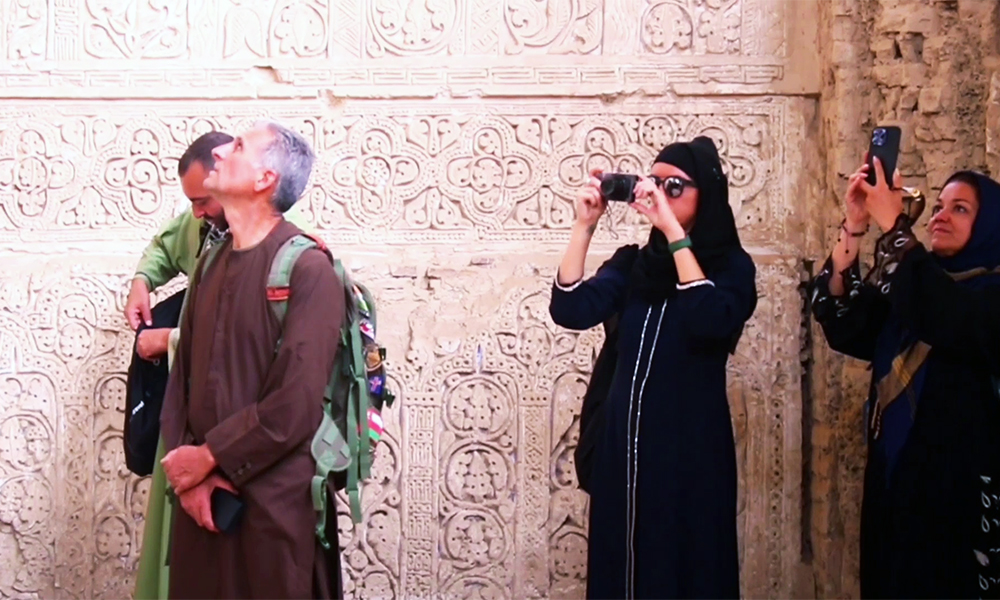
A group of Italian tourists visiting Balkh’s historical monuments said on Sunday security in Afghanistan has enabled them to visit Bamiyan, Herat and Kabul in the past nine days.
The tourists said they have had positive experiences in the country and have enjoyed their trip so far.
One of the tourists, who was wearing traditional menswear said: “I feel very good, I feel very comfortable in these Afghan clothes, these clothes are very good in hot weather, really these clothes are made for Afghanistan climate, when I go back to Italy again, I will use these clothes there as well.”
“I just came to Afghanistan and I am very happy to visit this beautiful country, really, what I had heard about the beauty of this country is exactly the same, I am really amazed to see this place,” said another tourist.
They said they have visited historical sites and have had the opportunity to experience the culture and customs of the Afghan people.
“I am really very happy to come to this country, a country with very old history and culture, I am really happy to be here,” said another Italian tourist.
Meanwhile, officials in the Balkh Department of Information and Culture report an increase in the number of domestic and foreign visitors.
Abdul Wahid Ahadi, Director of Tourism at the Department of Information and Culture in Balkh said in the first three months of this year, over 190 foreign tourists from around the world visited the province.
“Almost 191 foreign tourists have visited Balkh province, to see ancient tourist sites; they came from nearly 32 different countries of the world,” said Ahadi.
Balkh province has more than a hundred ancient and historical buildings, sites and areas – including the tomb of Hazrat Ali, the Khanqah of the father of Maulana Jalaluddin Mohammad Balkhi, and the tomb of Rabia Balkhi.
Balkh
Two die of Congo fever in Balkh Central Hospital
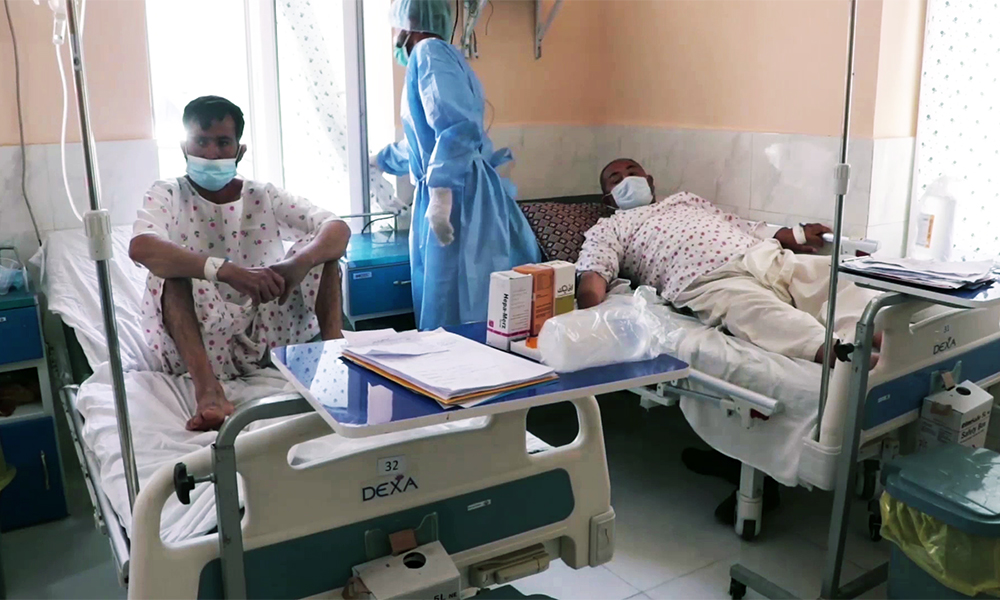
Two patients died of Congo fever in Abu Ali Sinai Balkhi Hospital in Mazar-e-Sharif city, health officials said.
Reports of an outbreak of Congo fever have been recorded in a number of provinces in the north of the country.
Najibullah Tawana, head of public health of Balkh, announced the death of two people in the meeting of sectorial coordination to prevent and reduce diseases between humans and animals in the province.
“Last week, 10 cases of Congo disease were confirmed in Faryab and Jawzjan and [patients were] transferred to Abu Ali Sina Balkhi seminary hospital, but two of them have died,” said Tawana.
Meanwhile, Mawolavi Mohammad Nasim Abid, the deputy mayor of Mazar-e-Sharif, said that they monitor the cleanliness and compliance of butchers every day, and that animals are slaughtered in slaughterhouses built by this department.
According to him; standard facilities have been established for the slaughter of chickens to prevent the spread of various diseases.
Mawolavi Zabihullah Noorani, the head of Balkh culture and information, also asked the media to inform the people about the prevention of this disease and inform them about the harm of this deadly disease.
-
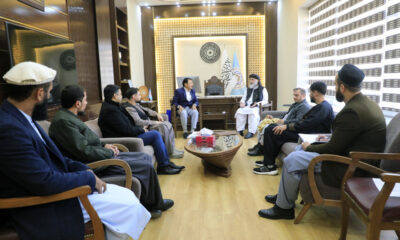
 Latest News4 days ago
Latest News4 days agoAfghanistan welcomes investment and technology partnerships with India
-

 Sport4 days ago
Sport4 days agoAfghan Peaks founder climbs Aconcagua to promote Afghanistan’s mountain potential
-
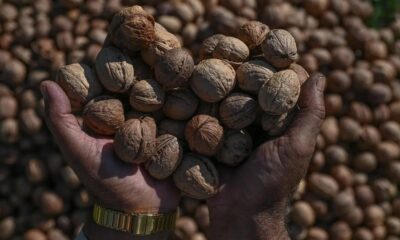
 Latest News3 days ago
Latest News3 days agoIndian customs seize Chinese walnuts falsely declared as Afghan
-

 Business4 days ago
Business4 days agoPakistan allows re-export of stranded Afghan transit cargo
-
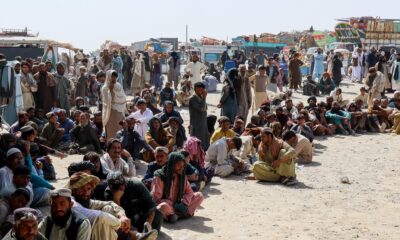
 Latest News3 days ago
Latest News3 days agoPakistan’s Punjab to send home 20 more Afghans in repatriation drive
-

 Latest News4 days ago
Latest News4 days agoPakistan signals possible air strikes as Kabul releases Pakistani soldiers in goodwill move
-
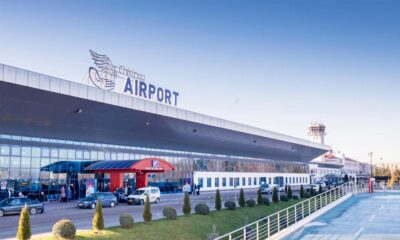
 Latest News2 days ago
Latest News2 days agoMoldova bans Afghan airlines over safety concerns
-
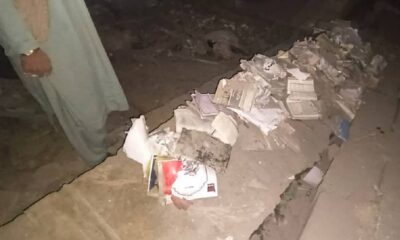
 Latest News1 day ago
Latest News1 day agoAfghanistan vows retaliation after Pakistan launches air strikes


